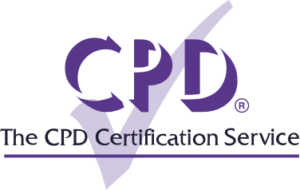In this Headteachers CPD Guide
Why do Headteachers need CPD?

A headteacher is the person who is in charge of a primary or secondary school. They are responsible for the overall management of the school, including the academic performance of the students, the welfare of the staff, and the school’s budget. A headteacher is an important role because they are responsible for everything in the school. They provide direction and guidance to teachers and staff, ensure that educational standards are met, and create a safe and positive learning environment for students.
To become a headteacher you typically need to have a qualification in teaching, several years of teaching experience, and a postgraduate qualification in education leadership or management. Additionally, you may need to meet certain criteria set by the school or local authority, such as demonstrating strong leadership skills and experience in managing staff and budgets. It’s also important to stay up to date with current education laws, policies and practices.
What our customers have to say
Dan King
Mobilisation, Training & Performance Manager

Sophie Aiken
HR Manager

Harriet Lee
Retail Recruitment Manager

What CPD courses do Headteachers need?
There are a range of CPD courses on our website that are suited to headteachers. Some of these are:
Understanding Bullying – this course will give you a greater understanding of bullying in children. It will cover why bullying happens, how to support children that are being bullied and supported parents, as well as ways to prevent bullying including an anti-bullying policy.
ADHD Awareness – this course explores factors that may increase the risk of ADHD. It covers signs and symptoms, diagnosis, and the support available for children with ADHD within education.
Data Protection in Schools – this course will introduce you to the GDPR and how this works alongside the Data Protection Act 2018. It includes an individual’s different rights, and what is considered as a breach of data protection.
Equality and Diversity for Teachers – as a headteacher you have a legal duty to protect employees and pupils from being treated unfairly. This course will cover the Equality Act 2010, how to create a strong equality and diversity policy, and how to promote inclusion.
Fire Safety in Schools – this will cover the importance of fire safety and the set of practices that are designed to reduce the destruction that is caused by fires, how to prevent fires from starting, and how to adhere to fire safety laws. Different types of fire extinguishers will be covered as well as the different classes of fire.
Internet Safety in Schools – this course teaches the positive opportunities for internet use, whilst acknowledging the associated risks. The internet has countless online resources to help teachers improve their practices and enable learners to meet their education goals. To do this safely, you will learn how to set an e-safety policy, comprising of existing legislation and policies around behaviour, anti-bullying and safeguarding.
LGBTQ+ in Schools – this course examines how to promote LGBTQ+ in schools, the history and legislation of LGBTQ+ and how to create an inclusive environment for these communities. It will also cover the statutory guidance for schools, the Ofsted requirements, and how to tackle homophobia.
Managing Behaviour that Challenges – this course will cover the basic needs of children, why it is important that these needs are met, and different forms of challenging behaviour. It will help you to understand how to help children manage their own behaviour, and how to set boundaries to help with behaviour.
Mental Health Awareness for Teachers – being a headteacher can be extremely stressful, so this course looks at mental health statistics in teachers and common mental health problems associated with the profession. It will also provide a toolkit that teachers can use to help them maintain positive mental health.
Mental Health in Schools – this course will explore strategies that can support good mental health and wellbeing in children and young people. You will look at the most common mental health illnesses, the signs and symptoms of mental ill health, and the importance of providing additional support to children with mental health problems.
Safeguarding Children Level 3 (Designated Officer course) – this covers the importance of safeguarding children, the role of the designated officer and their responsibilities. Safeguarding children is everyone’s business (especially headteachers), so the responsibilities of safeguarding are explored in detail. Short- and long-term risks of abuse will be explored, as well as procedures on how to report and respond to disclosures of abuse.
Safer Recruitment in Education – this covers the relevant legislation and guidance relating to safer recruitment, including Working Together to Safeguard Children, Keeping Children Safe in Education, and the Governance Handbook. The recruitment process will be explored in detail from placing job adverts, to applications and how to encourage the most suitable applicants.
Understanding Anxiety in Children – this course explores what anxiety is, the different types of anxiety, the different symptoms, and what causes it. It will cover the impacts of anxiety, and the different ways a child can be supported.
Download our CPD trackerA guide to CPD for Headteachers
Being a headteacher can be a demanding role, so Continuing Professional Development (CPD) is required to help ensure that you are working using the correct knowledge and legislation. As education standards and policies change, headteachers need to keep up to date with the latest practices and developments in the field. Therefore, CPD will help improve your skills and knowledge and stay up to date with developments in the sector. Headteachers are regulated by the Headteachers Standards 2020. This is a set of 10 standards that a headteacher must abide by and show they meet through their practice. CPD can help headteachers to meet these standards and ensure that they are appropriately equipped to lead schools effectively.
CPD certificates
All of the courses provided by CPD Online College are provided online which gives you the flexibility to complete the course in your own home, at a time that suits you best. This can be especially helpful for headteachers who have a large responsibility in their working role supporting both staff and students.
Each course will end with students receiving a CPD certificate when they pass the course. This will be available for you to access via download directly to your computer. You can then go on to print this to have as a hard copy and can save it to your computer.
Logging CPD hours
We advise our students to log their CPD hours continuously as they complete CPD training, as the Headteacher Standards may require a set number of hours of completed training each year. This includes the time spent on our CPD courses, as well as any other types of CPD training that you embark on.
There are many things that can count towards your CPD such as:
- Attending conferences.
- Engaging with webinars.
- Job shadowing.
- Completing your own reading/research.
- Working with a mentor.
Keeping evidence
Your logged CPD hours can be used to create a CPD portfolio. This can be used as evidence of your CPD training, and can be shown to your regulator, board of trustees, or employer should they request to see your CPD training. It should include proof of any of the CPD training activities that you have engaged with and your CPD Online College course certificates.
Renewing CPD certificates
Your CPD certificates should be renewed in line with changes to practice, legislation and guidance. The education sector experiences continuous changes as research and policy progresses, so your CPD must match the new developments. We advise that you renew your CPD Online College certificates every two years to keep your knowledge up to date.
























